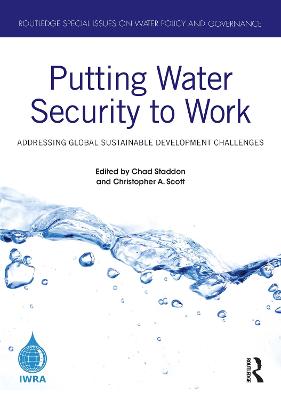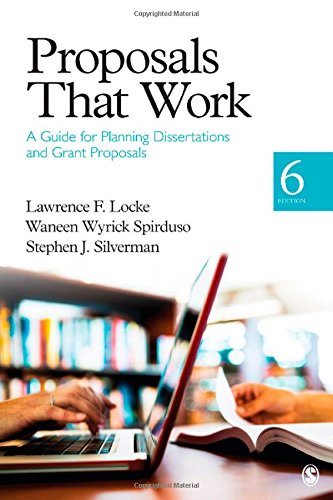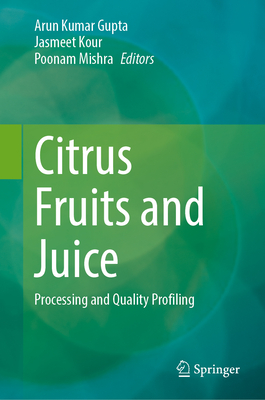图书简介
Over the last decade, water security has replaced sustainability as the key optic for thinking about how we manage water. This reframing has offered benefits (including clear recognition of the link between humans, the environment and the right to water) and also posed challenges (the tendency in some quarters to interpret “security” solely in terms of geopolitical or economic “securitisation”).In this collection, the authors offer a radical repositioning of these debates updated to reflect the concerns of our post-pandemic world. The chapters in this volume examine several different themes including how water security articulates with locality and culture, how it operates across spatial scales and its moral/ethical resonances.The chapters in this book were originally published in the journals Water International and International Journal of Water Resources Development.
Introduction: Rethinking Water Security in a Globalised World: Steps to Meeting SDG6
Chad Staddon and Christopher A. Scott
1. Putting water security to work: addressing global challenges
Chad Staddon and Christopher A. Scott
2. Is water security just? Concepts, tools and missing links
Sarah Wade
3. Challenges in meeting water security and resilience
Vijay P. Singh
4. The cultural dimensions of household water security: the case of Kathmandu’s stone spout systems
Olivia Molden, Nicholas Griffin and Katie Meehan
5. Contested access: improving water security through benefit sharing
Bimo A. Nkhata
6. Why doesn’t every family practice rainwater harvesting? Factors that affect the decision to adopt rainwater harvesting as a household water security strategy in central Uganda
Chad Staddon, Josh Rogers, Calum Warriner, Sarah Ward and Wayne Powell
7. Water security and the pursuit of food, energy, and earth systems resilience
Christopher A. Scott, Tamee R. Albrecht, Rafael De Grenade, Adriana Zuniga-Teran, Robert G. Varady and Bhuwan Thapa
8. Unraveling transboundary water security in the arid Americas
Tamee R. Albrecht, Robert G. Varady, Adriana A. Zuniga-Teran, Andrea K. Gerlak, Rafael Routson De Grenade, América Lutz-Ley, Facundo Martín, Sharon B. Megdal, Francisco Meza, Diego Ocampo Melgar, Nicolás Pineda, Facundo Rojas, Rossi Taboada and Bram Willems
9. De-nationalization and de-securitization of transboundary water resources: the Israeli–Palestinian case
David B. Brooks and Julie Trottier
Trade Policy 买家须知
- 关于产品:
- ● 正版保障:本网站隶属于中国国际图书贸易集团公司,确保所有图书都是100%正版。
- ● 环保纸张:进口图书大多使用的都是环保轻型张,颜色偏黄,重量比较轻。
- ● 毛边版:即书翻页的地方,故意做成了参差不齐的样子,一般为精装版,更具收藏价值。
关于退换货:- 由于预订产品的特殊性,采购订单正式发订后,买方不得无故取消全部或部分产品的订购。
- 由于进口图书的特殊性,发生以下情况的,请直接拒收货物,由快递返回:
- ● 外包装破损/发错货/少发货/图书外观破损/图书配件不全(例如:光盘等)
并请在工作日通过电话400-008-1110联系我们。
- 签收后,如发生以下情况,请在签收后的5个工作日内联系客服办理退换货:
- ● 缺页/错页/错印/脱线
关于发货时间:- 一般情况下:
- ●【现货】 下单后48小时内由北京(库房)发出快递。
- ●【预订】【预售】下单后国外发货,到货时间预计5-8周左右,店铺默认中通快递,如需顺丰快递邮费到付。
- ● 需要开具发票的客户,发货时间可能在上述基础上再延后1-2个工作日(紧急发票需求,请联系010-68433105/3213);
- ● 如遇其他特殊原因,对发货时间有影响的,我们会第一时间在网站公告,敬请留意。
关于到货时间:- 由于进口图书入境入库后,都是委托第三方快递发货,所以我们只能保证在规定时间内发出,但无法为您保证确切的到货时间。
- ● 主要城市一般2-4天
- ● 偏远地区一般4-7天
关于接听咨询电话的时间:- 010-68433105/3213正常接听咨询电话的时间为:周一至周五上午8:30~下午5:00,周六、日及法定节假日休息,将无法接听来电,敬请谅解。
- 其它时间您也可以通过邮件联系我们:customer@readgo.cn,工作日会优先处理。
关于快递:- ● 已付款订单:主要由中通、宅急送负责派送,订单进度查询请拨打010-68433105/3213。
本书暂无推荐
本书暂无推荐















